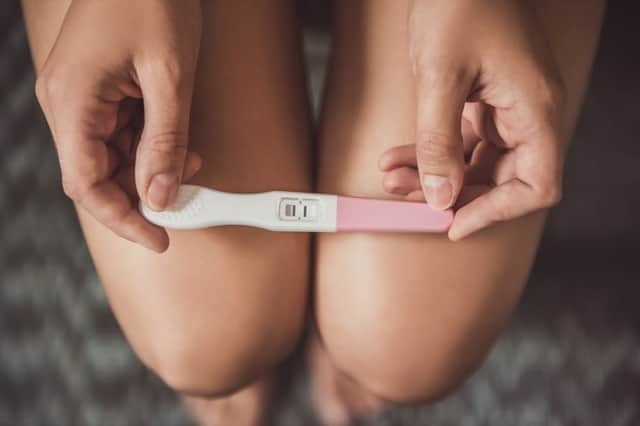Here’s why you could still be pregnant even with negative test results


An over-the-counter pregnancy test is usually the first port of call to check if you could be pregnant, and home tests are around 99 per cent accurate.
However, if you’ve got too much of a certain hormone in your body, you could still be pregnant even if your test appears negative.
Advertisement
Hide AdAdvertisement
Hide AdHow does this happen?
It’s called the ‘hook effect’ and it means you could be seeing a negative result on a pregnancy test even when you are pregnant.
The hook effect occurs when a woman has irregularly high levels of a hormone that is produced during pregnancy.
Pregnancy tests are designed to detect a hormone in your urine called human chorionic gonadotropin (hCG).
This hormone is produced after a fertilised egg attaches itself to the wall of the uterus.
Advertisement
Hide AdAdvertisement
Hide AdIf you are pregnant, your levels of hCG will increase rapidly, doubling every two to three days.
What’s the hook effect?
The hook effect intervenes with the signals in the body that indicate pregnancy.
When you’re pregnant, the hCG molecules would get sandwiched between two antibodies and this is how it’s detected by a pregnancy test.
However, if you’ve already got too much hCG in your body, the antibodies will be flooded and the test will come back negative. This is called the ‘hook effect’.
Advertisement
Hide Ad